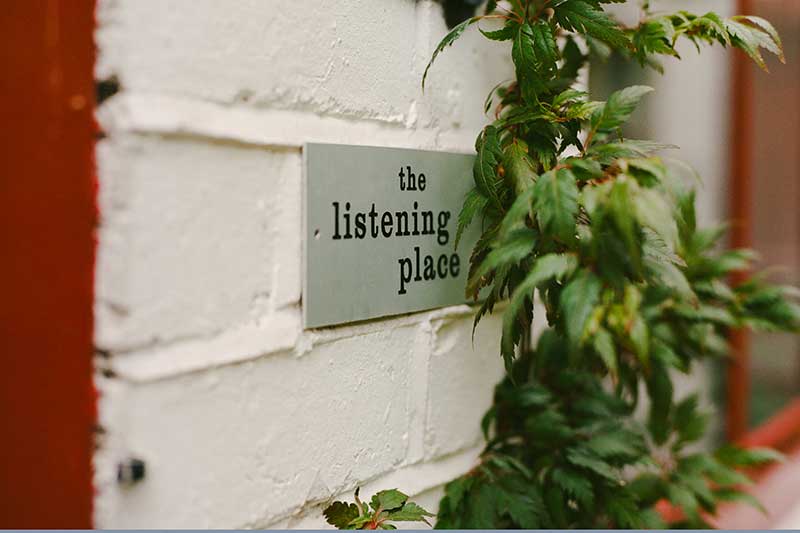There are two key roles in The Listening Place:
Listening Volunteers
LVs provide ongoing face-to-face support to visitors on regular, fortnightly 4-hour shifts during which they meet with up to three visitors (for up to 50 minutes each). Although no experience is necessary, we seek certain qualities in our listening volunteers, including the ability to be non-judgemental, warm, caring, empathetic, and supportive, and to avoid giving advice.
Helping Volunteers
HVs are central to each shift as they meet and greet our visitors and create a warm and welcoming atmosphere. For this vital role, we are recruiting volunteers who have the empathy to greet distressed visitors and the willingness and resilience to support their team on shift. Our helping volunteers need to be able to commit to a regular weekly or fortnightly 4-hour shift.



